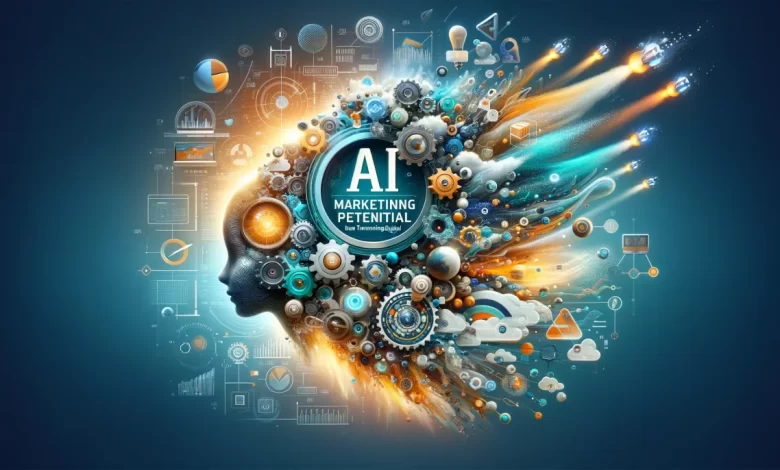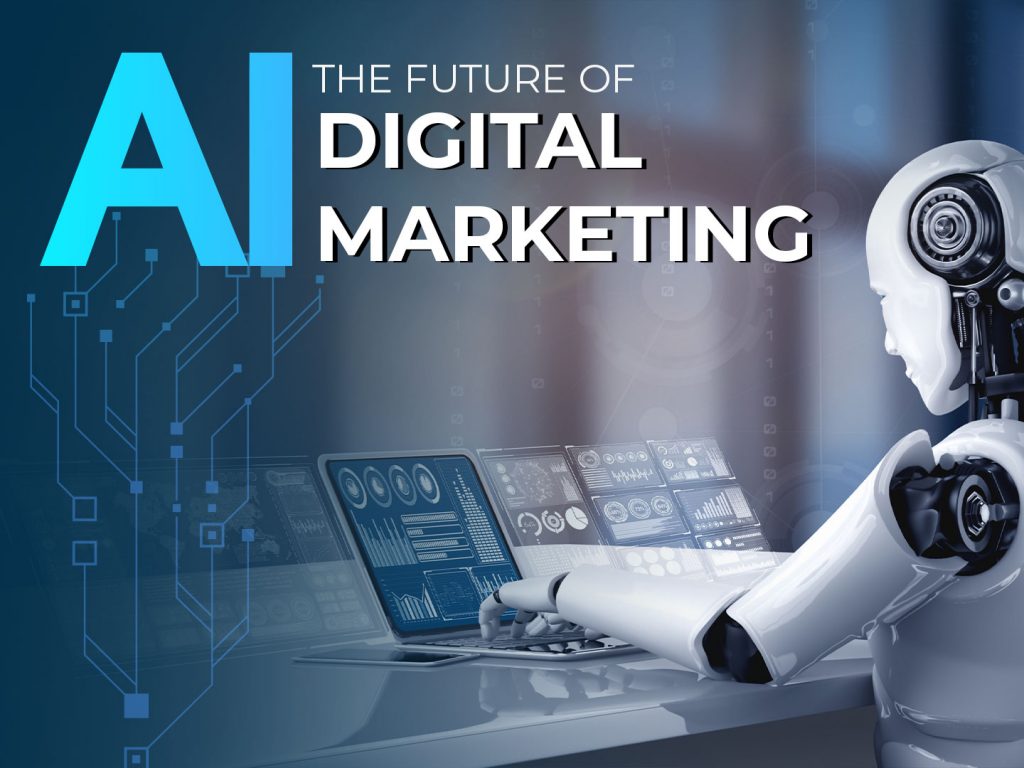Introduction
Artificial Intelligence (AI) is changing how companies approach marketing in today’s fast-paced digital world. AI-powered tools and algorithms analyze vast amounts of data, predict consumer behavior, and automate marketing processes, making campaigns more effective and personalized. The incorporation of AI in digital marketing is altering the industry, whether it’s chatbots offering fast customer service, predictive analytics enhancing ad targeting, or AI-powered content production.
AI in Digital Marketing
Artificial intelligence (AI) in digital marketing is the application of AI technologies, such as data analytics, machine learning, and natural language processing, to improve approaches to marketing. These technologies aid in decision-making optimization, process automation, and customer experience enhancement.
AI is the replication of human intelligence in machines that are capable of independent learning, thinking, and task completion. AI-powered tools and algorithms are used in digital marketing to boost return on investment (ROI), enhance customer interaction, and optimize marketing campaigns. Chatbots and machine learning are a few of the major AI technologies.

The Impact of AI on Digital Marketing
1.Personalized User Experience
With the help of AI, marketers can present consumers with content that matches their interests, behavior and previous interactions. Companies leverage AI to create personalized experiences, leading to higher customer satisfaction, increased conversions, and stronger brand loyalty. This level of personalization increases customer satisfaction and engagement.
2. Predictive Analytics and Data-Driven Decision Making
Artificial intelligence (AI) improves decision-making by offering data-driven prediction insights. With AI-powered analytics tools, marketers can predict consumer behavior, trends and campaign success. AI is used by companies to optimize marketing strategies based on predictive analytics.
3. AI-Powered Ad Targeting
AI-powered ad targeting is a technology-driven approach that uses AI and machine learning to deliver personalized advertisements to users. AI predicts the best ads for each user, improving engagement and conversions.
4. Email Marketing Automation
Through the analysis of user interactions, AI-powered email marketing systems such as HubSpot and Mailchimp optimize email campaigns. AI tracks user activity to send emails at the most efficient times and assists in personalizing email content for more precise targeting. This results in increased open rates, click-through rates, and overall marketing efficacy.
5. AI Chatbots and Conversational Marketing
AI-powered chatbots improve customer service by answering questions effortlessly and efficiently. By using Natural Language Processing, chatbots can engage in meaningful conversations, offering human-like responses and improving the overall customer experience.
6. Programmatic Advertising
Programmatic advertising, as opposed to traditional approaches, maximizes efficiency and return on investment by placing ads quickly based on data-driven insights. Cost-effectiveness, scalability and real-time optimization are some of its advantages
7. Voice Search Optimization
Voice search is no longer a futuristic trend—it’s here, and it’s growing fast. It helps businesses rank for voice-based queries on Google Assistant, Alexa, Gemini etc. It involves using Long tail keywords and answering common questions. A mobile-friendly, fast-loading website enhances visibility. Those who adapt it will enjoy increased visibility and engagement from voice search users.
8. Social Media Optimization
Artificial intelligence evaluates social media trends, automates posts and recommends audience-relevant content. Furthermore, AI maintains brand trust by identifying spam and illegitimate followers. With AI handling social media tasks, Businesses need not to spend hours managing posts manually.
Why is AI a Game-Changer in Digital Marketing?
Think about how much data is out there—customer preferences, browsing habits, purchase history—it’s overwhelming! Instead of spending hours manually, AI can instantly tell you exactly what your customers want. And now let’s discuss advertising. AI doesn’t just guess who might be interested in your ads—it knows. AI is no longer a luxury; it’s a must-have. Businesses that use AI in marketing are more efficient, effective and Connected with their audience. Automation is another big win. Imagine instead of you AI works behind the scenes to keep things running smoothly.
Benefits of AI in Digital Marketing
Improved Efficiency: AI saves time By automating time-consuming processes like social media posts and email marketing.
Improved Personalization: AI makes sure that every consumer gets suitable emails, advertisements and product recommendations, which boosts engagement and conversions.
Better Conversion Rates: AI ensures more personalized and interactive content is used resulting in higher engagement rates.
Scalability: Businesses can manage large audiences without sacrificing effectiveness orservice quality thanks to automated procedures.
Challenges and Considerations
Dependency on Data: The efficiency of AI is determined by the quality and availability of
data.
Algorithm Bias & Ethical Concerns: AI models may exhibit biases that affect marketing outcomes and raises ethical questions, such as the manipulation of consumer behavior.
Initial Implementation Costs & Maintenance: AI integration necessitates a large trainingand technological investment. Businesses may find it difficult to maintain AI systems over the long run since they need to be updated frequently.
Customer Trust Issues: Customers may be concerned about how their data is acquired, stored, and used.
Final Thoughts
AI has become an indispensable asset in digital marketing, offering various innovative solutions. AI is constantly reshaping digital marketing by providing data-driven insights, enhancing customer experience and automating processes. As AI technology continues to evolve, businesses must adapt these and stay updated with emerging trends and refine strategies to stay relevant in the ever-changing digital landscape. Organizations can achieve long-term success by developing ethical standards and customer trust.
Want to stay ahead? Start integrating AI into your marketing strategy today and watch your business grow!







